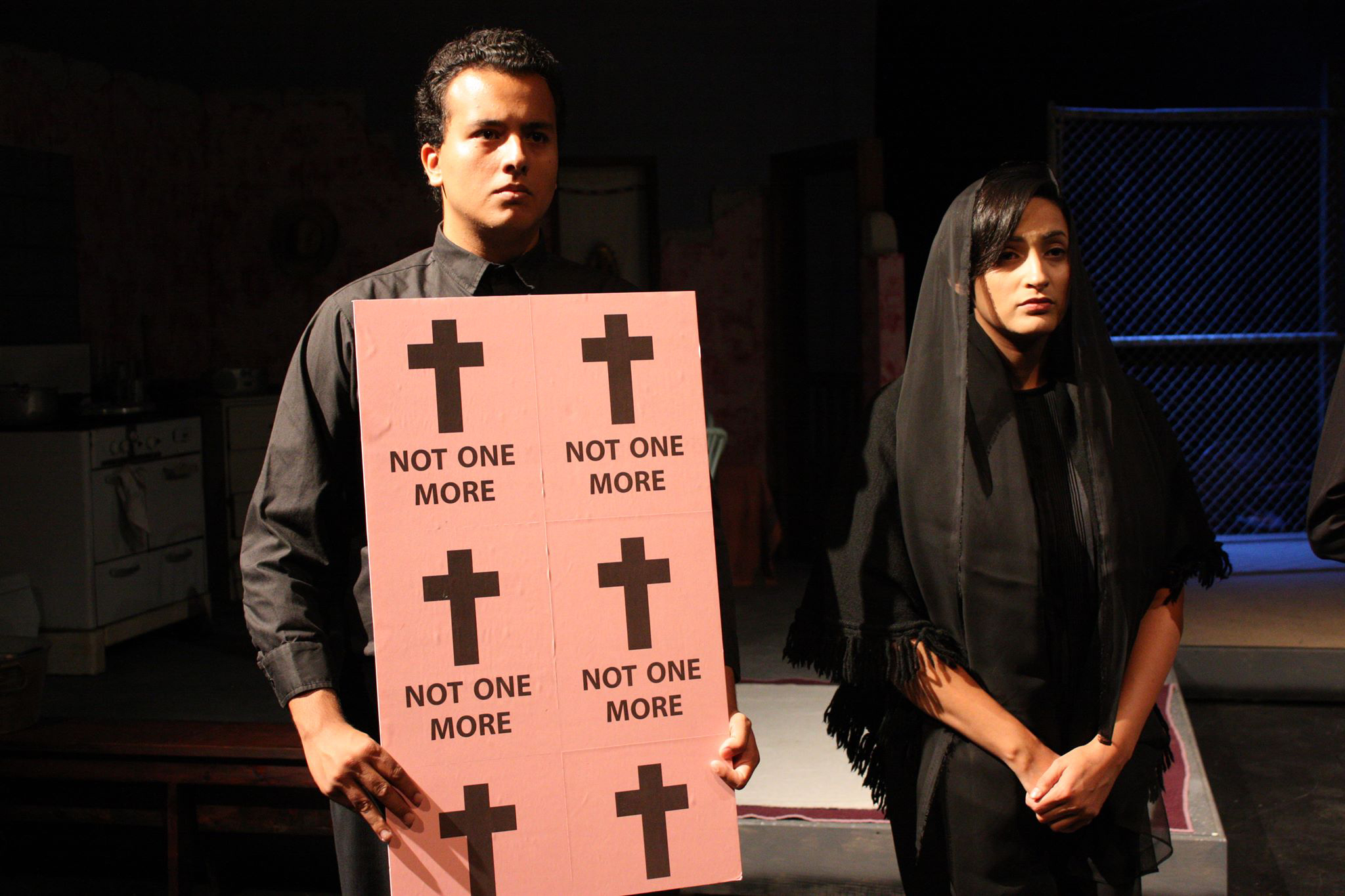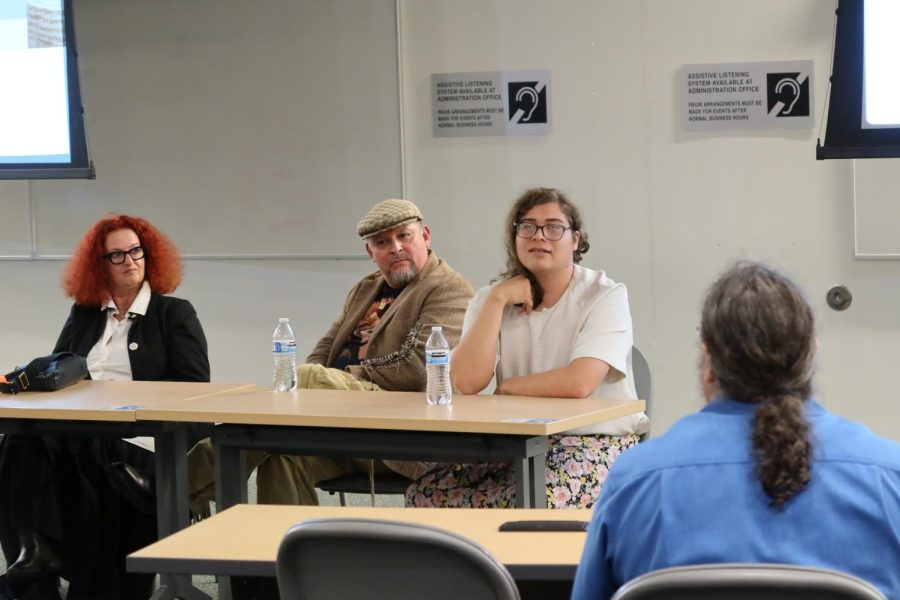
Karla Castañeda, the mother of a thirteen-year-old girl who disappeared in Ciudad Juarez, spoke at the Spanish showing of the Women of Juarez play, detailing the corruption that led her to flee Mexico.
The Friday, October 14 performance saw Castañeda, who is seeking asylum in the United States, in the front row of the Studio Theater as actors related the story of the hundreds of women who have gone missing in the Mexican city.
“Sitting here was like going back in time and reliving it all,” Castañeda said.
Her daughter, Cinthia Castañeda Alvarado, went missing on October 24, 2008 after going to return a pair of shoes.
She was accompanied by other schoolmates who took the bus without her after taking too long at the store.
One of the last times she was seen was by Castañeda’s neighbor, who saw her get on a bus carrying a box of shoes.
Foreshadowing what was to come, Castañeda took matters into her own hands by going to the press, after authorities had her wait 72 hours to file a missing person’s report.
“The next day, I received a call from a person who identified herself as Hilda. She told me she saw my daughter crying while being held by a man who was 45-50 years of age at a monument in the city at around 11:00 a.m.”
Believing the man was the girl’s father, the woman on the other end of the receiver decided not to check on the child, even though their gaze didn’t break for a while.
“She worked in human resources, so she was going to make a missing person’s photo for me, but the authorities intimidated her out of doing so,” Castañeda claimed. The mother never heard from Hilda again.
Listening to the story was history major Mariana Elizalde, who felt a personal connection to Castañeda’s account.
“It really struck me, I’m from Mexico, and when I go I do hear people talk about missing girls, it’s different to hear the stories than to have a mother here tell you her story.
“It touched my heart, it makes me think ‘what can I do?’ It easily could have been me.'”
Likewise, Counseling Department Program Assistant Nayeli Dueñas was moved to tears by Castañeda’s story.
“It was very emotional, I have kids of my own and just to think of ever looking for a child that young, it’s stunning what is going on over there, how nothing is being done and just seeing how police are acting.
She continued, “Women are seen as objects and [the blame is put on them] and not the government, it amazes me. You hear it on the news, but to hear a mother and hear the hope that is still there, it is something that is amazing.”
Since the dissapearance, Castañeda has become an activist seeking answers from the government about the disappearance of her daughter and others.
“I have done marches and strikes, the last thing I was able to do in Juarez was a march to Chihuahua City, the state capital.”
She is referring to a 200-mile plus trek that mothers of missing women embarked on called Walk for Life in January 2013.
The march went on for eight days and nights and it was after this that Castañeda began receiving threats.
According to Castañeda Chihuahua Governor Cesar Duarte refused to meet with the mothers and fathers who were part of the march.
“He wanted a private audience with us, and I told the other mothers that we would agree to a public one because otherwise, no one would know what happened but us,” the mother stated, “in a public setting in front of the press he won’t be able to deny us anything.”
During the public audience, Castañeda confronted the governor.
“The governor called me after and offered me a large sum so I would stop looking for my daughter and inform the government what the other mothers planned on doing,” Castañed stated.
She refused to which she claims the governor responded, “You will assume the consequences.”
According to the mother, she and others participating in a march were shot at and intimidated through various tactics including tear gas.
Castañada ultimately ended up fleeing Juarez after police forces entered her home.
“They did that because I wasn’t willing to sell myself to the government, I wasn’t going to stop looking for my daughter and other mothers were supporting me.”
After learning that the police also arrived at the homes of her mother, brothers, and grandmother, Castañeda reached the conclusion that if she stayed she would probably wound up dead and fled with her four children.
After spending a week detained in immigration services and after a reported robbery at the hands of a reporter who claimed was going to help her she received help from a friend in Los Angeles.
Cinthia’s case has since been closed in Juarez but Castañeda states that she will continue to look for her daughter.
“I’ve done two hunger strikes outside of the Mexican Consulate, the first one was done because I was going to be given a few remains that were allegedly my daughter’s.”
After the hunger strike, authorities declared that there had been a mistake and the remains did not in fact belong to Castañeda’s daughter.
Castañeda shared her wish with the audience, that more people will spread awareness and with the simple act of emailing local authorities, change will come.















